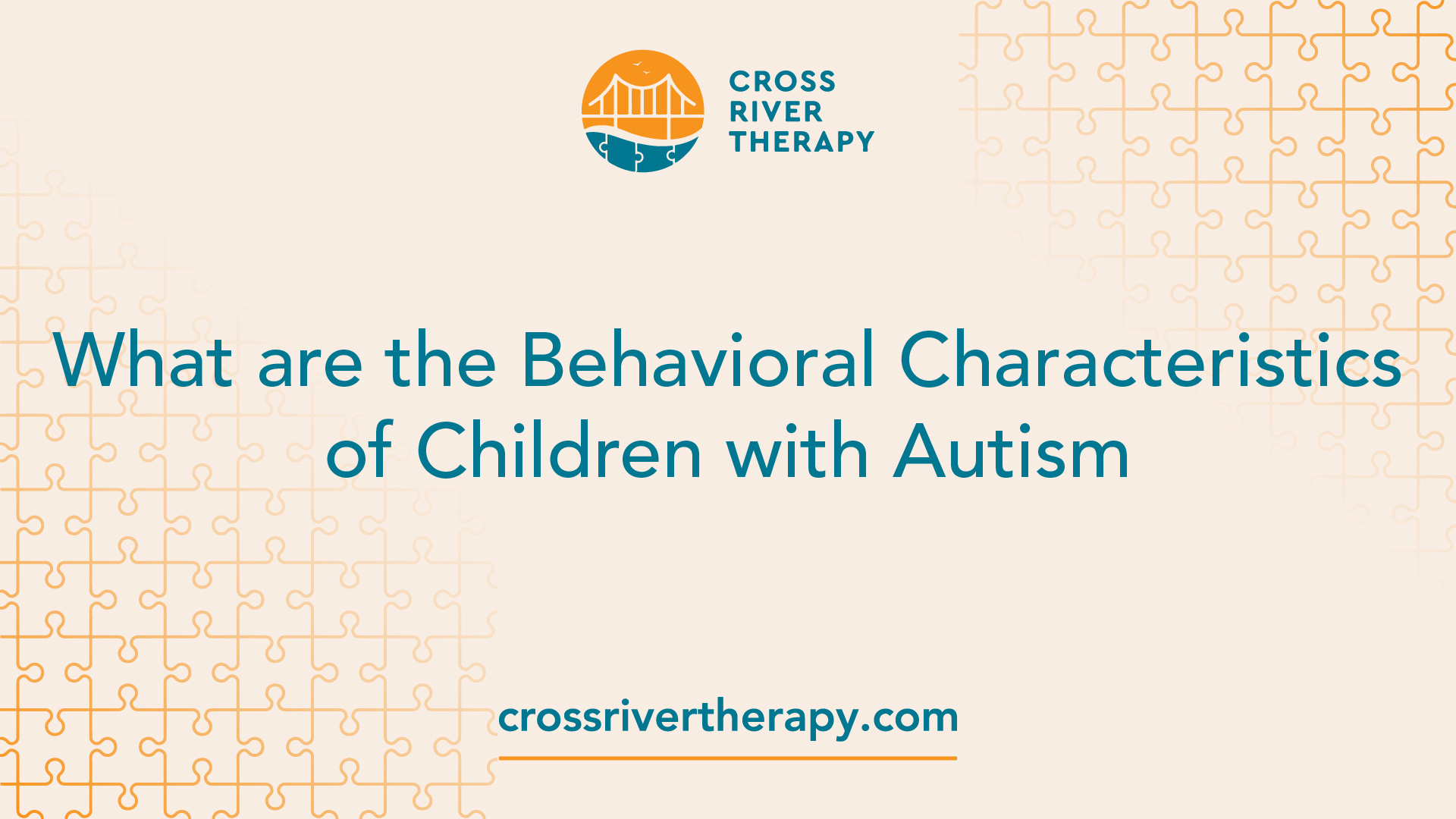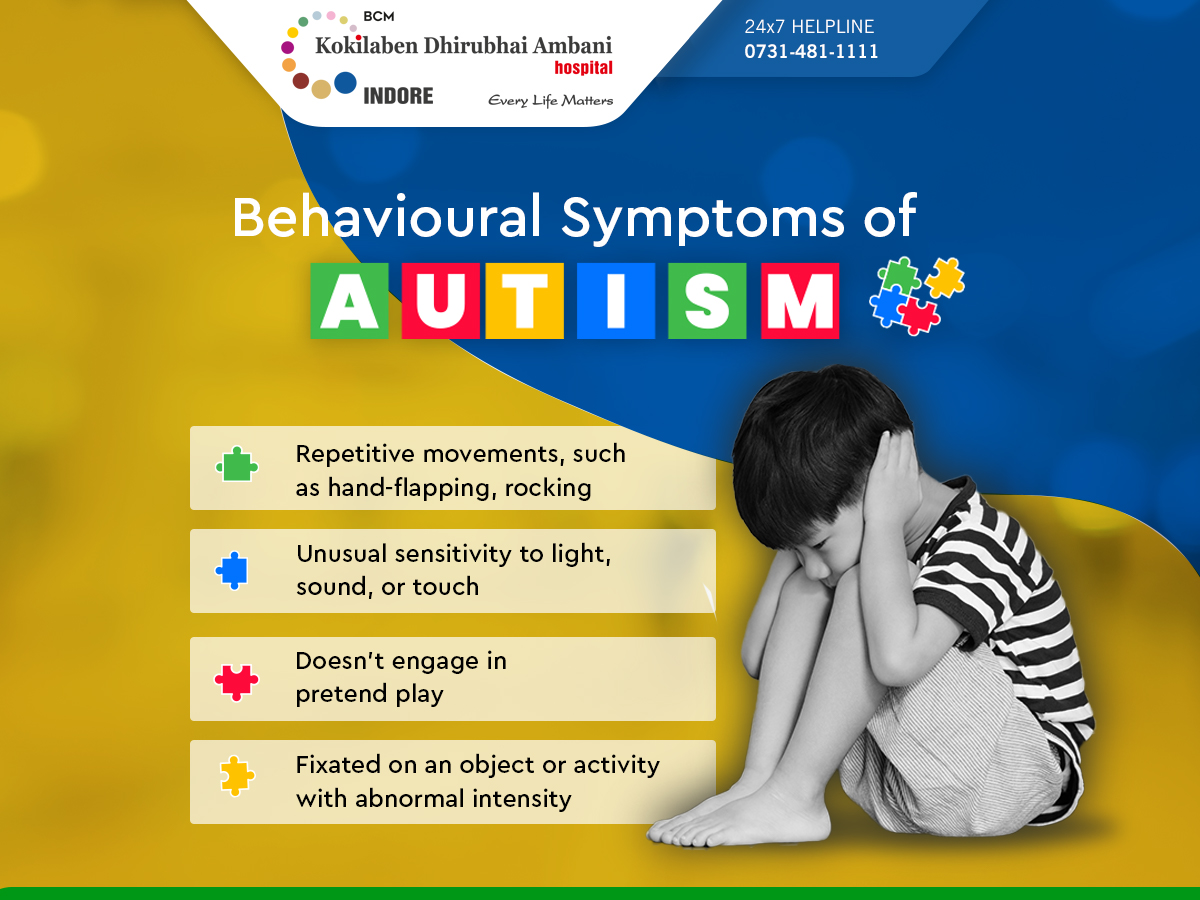Secret Signs and Signs to Recognize in Individuals With Behavior Autism
When you come across a person with behavior autism, recognizing crucial symptoms and signs is important. You could notice difficulties in social communications and interaction, as well as a strong demand for routines. Additionally, sensory level of sensitivities can bring about overwhelming experiences. Comprehending these attributes can enhance your support and interventions, however there's even more to reveal about how these habits materialize in day-to-day scenarios. Allow's explore what these signs really appear like.
Difficulties in Social Communications
When you interact with someone on the autism spectrum, you might notice they struggle with social cues and communication. These challenges can make social interactions really feel frustrating for them. You might see them preventing eye get in touch with or standing as well close or too far during conversations, which can create misunderstandings. They could not notice body language or facial expressions, making it harder for them to gauge just how others are really feeling.
Additionally, you might discover that they prefer regimens and acquainted settings, which can restrict their determination to engage in brand-new social circumstances. They may talk concerning their rate of interests in great detail without seeing if you're interested when they do engage. This can cause discriminatory discussions that leave you really feeling disconnected. Recognizing these difficulties can aid you approach interactions with empathy and patience, promoting a more comfy environment for both of you.
Problem With Verbal and Non-Verbal Interaction

Non-verbal communication can be a lot more challenging. You may see an absence of eye contact or restricted use motions, which can make interactions feel uncomfortable. Face expressions may not always line up with the discussion, leading to confusion regarding their sensations. Identifying these indicators is essential, as it helps you much better support and involve with individuals on the autism range. By comprehending their interaction obstacles, you can foster much more significant connections and supply an extra encouraging setting.
Repeated Habits and Routines
Interaction obstacles often come with various other indications of autism, such as repeated behaviors and a strong choice for regimens. You may discover that individuals with autism often involve in details, repetitive actions, like hand-flapping, rocking, or duplicating expressions. These behaviors can provide convenience and a sense of control in a typically overwhelming globe.
When they adhere to a structured routine,Routines are just as crucial; numerous people flourish. You might discover that changes to these regimens can result in substantial distress. If they have a day-to-day routine of consuming breakfast at a certain time or following a specific course to institution, any disturbance can cause stress and anxiety.
Identifying these patterns helps you comprehend their behavior and offer assistance. By accommodating their requirement for regular and permitting repetitive actions, you can develop an extra comfortable atmosphere that reduces their challenges.
Sensory Sensitivities

Common Sensory Triggers
Sensory level of sensitivities can significantly influence life for people with autism, as specific stimulations typically cause overwhelming reactions. Common sensory triggers consist of loud noises, brilliant lights, and solid smells. You may see that unexpected audios, like sirens or alarms, cause stress and anxiety or distress. Similarly, fluorescent lights in stores can really feel awkward and harsh. Structures can additionally play pop over to this site a significant role; rough materials or particular food textures may be intolerable for you. Furthermore, crowded areas can bewilder your detects, making it tough to concentrate or relax. Recognizing these triggers can assist you handle your atmosphere much better. By knowing what affects you, you can take steps to reduce discomfort and enhance your everyday experiences.
Behavioral Responses Explained
Comprehending your behavioral actions to sensory level of sensitivities is essential, as they usually disclose how you engage with the globe. You may likewise find yourself seeking certain sensory experiences, like deep stress or silent environments, to aid ground yourself. Identifying these patterns assists you recognize your requirements far better and can guide exactly how you connect them to others.
Coping Strategies Summary
Identifying your sensory sensitivities is just the very first action; currently it's time to discover coping strategies that can help you handle those experiences properly. Beginning by creating a sensory toolkit customized to your requirements. This can consist of noise-canceling earphones, fidget playthings, or relaxing aromas. Developing a structured routine can likewise supply predictability, reducing anxiety around sensory overload. When you feel overwhelmed, take breaks in a quiet space to collect yourself. Practicing mindfulness techniques like deep breathing can aid ground you in the minute. In addition, connect your requirements with those around you; having encouraging loved ones can make a significant distinction. Keep in mind, finding what works ideal for you might take some time, so be patient and open to attempting brand-new techniques.
Limited Rate Of Interests and Emphasis
While lots of individuals create a variety of passions, those with autism frequently demonstrate restricted rate of interests and an intense emphasis on specific subjects. You may notice that a person with autism can spend hours diving right into their preferred topic, whether it's a particular kind of train, a details flick, or a scientific principle. This extreme focus isn't simply a hobby; it can come to be a central part of their identity and social communications.
You might locate that discussions rotate around these interests, and they might have a hard time to engage in broader subjects. By comprehending and recognizing these restricted interests, you can foster a helpful setting where they feel valued and comprehended, enabling for more significant links and interactions.
Emotional Guideline Problems
People with autism typically face obstacles in emotional policy, which can be influenced by their intense focus on details interests. You could notice that when a person is deeply participated in a preferred task, they can experience strong emotions, whether excitement or stress. This strength in some cases makes it tough for them to move gears or handle their feelings when points do not go as prepared.

Irregularity in Developmental Landmarks
When it concerns developmental milestones, you'll notice that people with autism often show a large range of variability. Some might hit milestones in a timely manner, while others may drag or progress at a different speed. As an example, you could see a kid stand out in language skills but deal with social communications. This disparity can be complex, as typical criteria don't constantly apply.
It's essential to identify that each person's journey is distinct. Observing these patterns can assist you comprehend their staminas and needs better.
Frequently Asked Inquiries
How Is Autism Diagnosed in Children and Grownups?
To detect autism in children and adults, experts assess actions, communication skills, and social interactions. They often make use of standard examinations, interviews, and monitorings to figure out if an individual fulfills the requirements for autism spectrum condition.
Exist Various Kinds Of Autism Spectrum Disorders?
Yes, there are different kinds of autism range problems, including Asperger's syndrome and pervasive developing disorder-not or else check here specified. Each kind varies in intensity and attributes, so recognizing these differences can help you far better support people with autism.
What Treatments Work for People With Autism?
When thinking about reliable therapies for individuals with autism, you'll find options like Applied Behavior Evaluation, speech treatment, and work therapy. Each approach can assist enhance interaction, social skills, and daily functioning tailored to specific requirements.
Can People With Autism Lead Independent Lives?
Yes, people with autism can lead independent lives. With the right support, abilities training, and sources, you can help them create self-sufficiency, take care of everyday jobs, and prosper in numerous atmospheres, fostering their independence.
Exactly How Can Households Support Liked Ones With Autism?
You can sustain your liked ones with autism by developing an organized setting, encouraging their passions, practicing perseverance, cultivating communication, and advertising social skills. Commemorate their accomplishments, despite exactly how small, and construct a helpful neighborhood.
Although lots of individuals on the autism spectrum can use and understand language, they frequently encounter significant difficulties with both non-verbal and verbal communication. Identifying these indicators is necessary, as it aids you far better support and involve with people on the autism spectrum. You may observe that individuals with autism often engage in specific, repetitive actions, like hand-flapping, shaking, or repeating expressions.Sensory sensitivities can significantly impact daily life for individuals with autism, as certain stimuli typically set off frustrating reactions.When it comes to developmental turning points, you'll observe that individuals investigate this site with autism commonly show a broad variety of irregularity.